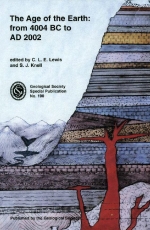Добрый день, Коллеги. Важное сообщение, просьба принять участие. Музей Ферсмана ищет помощь для реставрационных работ в помещении. Подробности по ссылке
The Age of the Earth: from 4004 BC to AD 2002 / Возраст Земли: с 4004 г. до н.э. по 2002 г. н.э. (как менялись представления о возрасте Земли)
The age of the Earth has been a subject of intellectual interest for many centuries, even millennia. Of the early estimates, Archbishop Ussher's famous calculation of 4004 BC for the date of Creation represents one of the shortest time periods ever assigned to the Earth's age, but by the seventeenth century many naturalists were sceptical of such chronologies. In the eighteenth century it was Nature that provided the record for Hutton and others.But not all observers of geology enquired about time. Many, like William Smith, simply earned a living from their practical knowledge of it, although his nephew, John Phillips, was one of the first geologists to attempt a numerical age for the Earth from the depositional rates of sediments. For more than fifty years variations of that method prevailed as geology's main tool for dating the Earth, while the physicists constrained requirements for a long timescale with ever more rigorous, and declining, estimates of a cooling Sun and Earth.
In 1896 the advent of radioactivity provided the means by which the Earth's age would at last be accurately documented, although it took another sixty years. Since that time ever more sophisticated chronological techniques have contributed to a search for the oldest rocks, the start of life, and human evolution. In the attempt to identify those landmarks, and others, we have greatly progressed our understanding about the processes that shape our planet and the Universe, although in doing so we discover that the now-accepted age of the Earth is but a 'geochemical accident' which remains a contentious issue.




